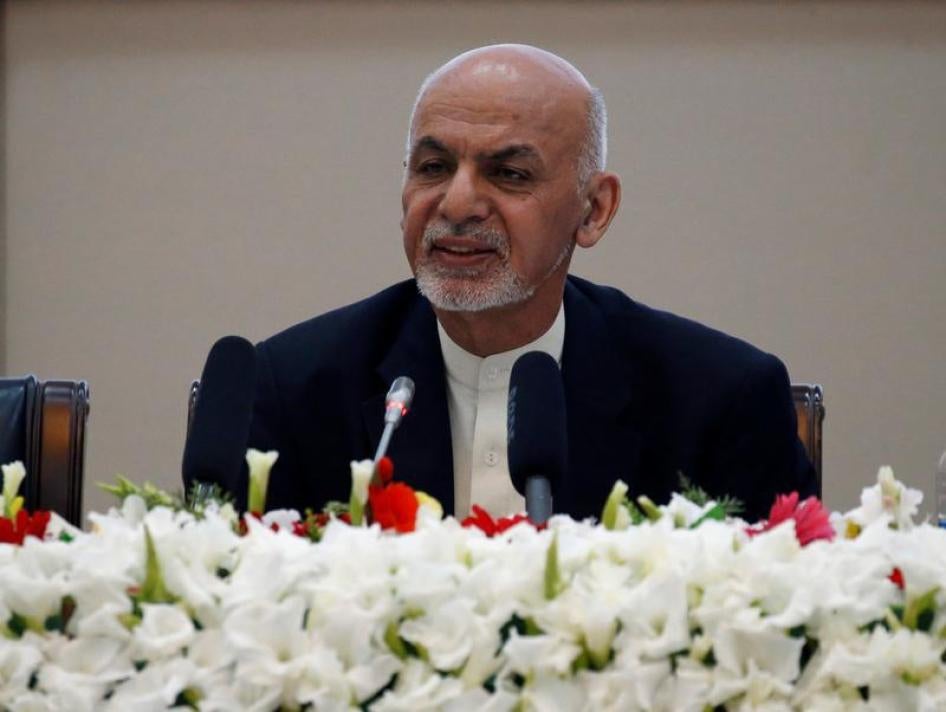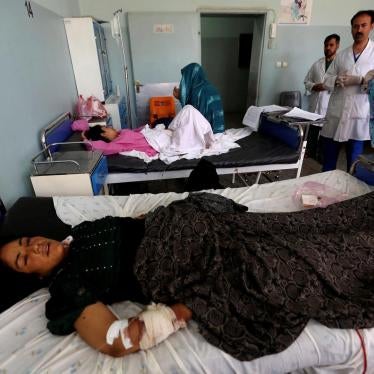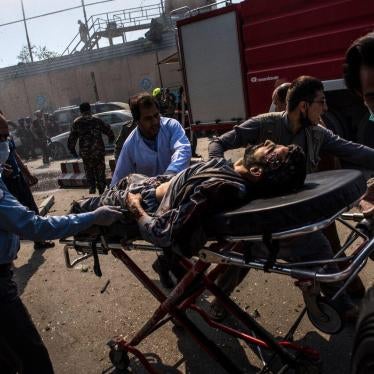Afghan President Ashraf Ghani apologized Thursday to the families of civilians killed and injured in Dasht-e Archi, Kunduz province, on April 2, 2018, when Afghan air force helicopters fired heavy machineguns and launched unguided rockets at an outdoor religious ceremony attended by hundreds of people. Thirty of the 36 people killed were children, some under age 10 – in an attack the government claimed was targeting senior Taliban leaders.
A report on the airstrike by the United Nations Assistance Mission to Afghanistan (UNAMA) found that the attack “rais[ed] questions as to the Government’s respect of the rules of precaution and proportionality” under the laws of war. UNAMA concluded that even if the government had a legitimate military target, the timing and place of the attack was contrary to the government’s obligations to take all feasible measures to spare civilians from harm, including under its Civilian Casualty Mitigation Policy.
Yes, the apology matters: it is important that the government acknowledge the loss and suffering of civilians harmed by military operations. But there was nothing in Ghani’s apology addressing a possible war crime having been committed. Instead Ghani stated that “the key difference between the government and insurgents is that a legitimate government will always seek forgiveness for mistakes.”
A willingness to apologize does not excuse a government from its laws-of-war obligations. The government should promptly, thoroughly, and impartially investigate and hold accountable all those responsible for violating the laws of war.
The bombing should ring alarm bells in the US. The US military plays a crucial role in support of Afghan air operations. The US provides training to the Afghan air force personnel and has recently provided it with new attack aircraft and helicopters.
Recently, a NATO civilian casualties mitigation team in Kabul told me that after the Kunduz attack, NATO carried out “extra” training sessions with Afghan air force personnel responsible for targeting. But the issue in the Kunduz attack isn’t just a matter of operational training. It is about government leadership in ensuring accountability for violations of international law, and applying the government’s policy to reduce civilian harm. Human Rights Watch has documented other airstrikes raising concerns about Afghan military investigations.
For these tragedies to stop, the Afghan government needs to do more to fully investigate incidents and learn from them, and appropriately punish those responsible for unlawful civilian deaths. Apologies are not enough.










